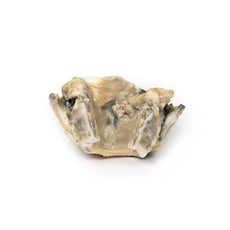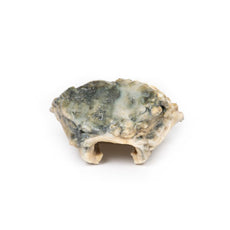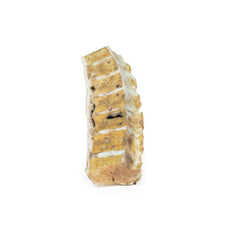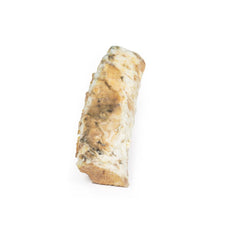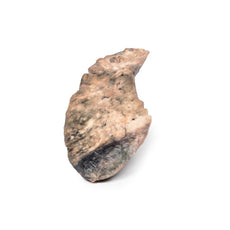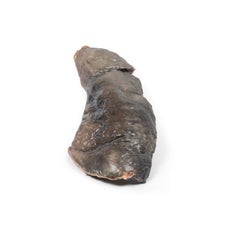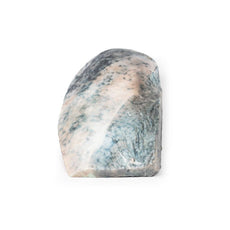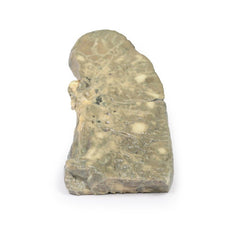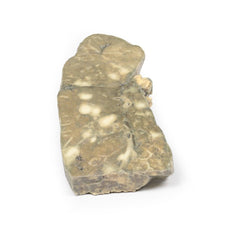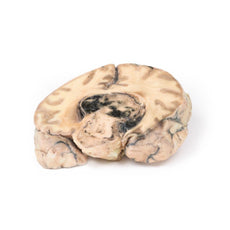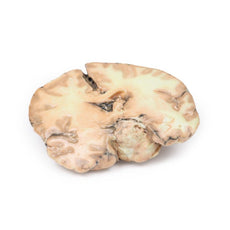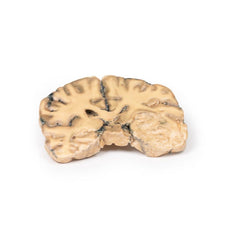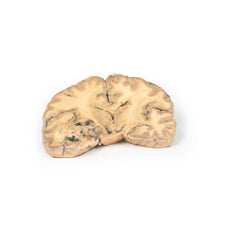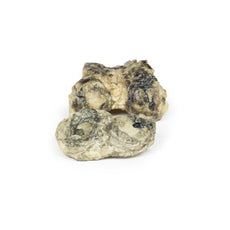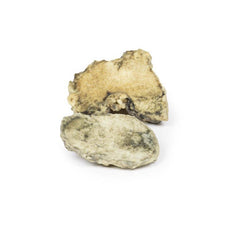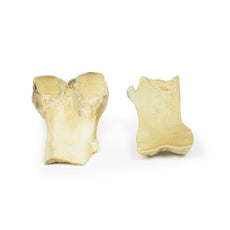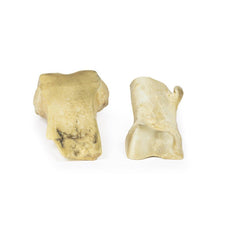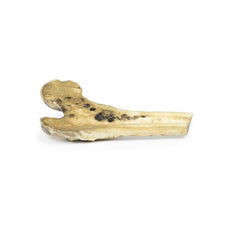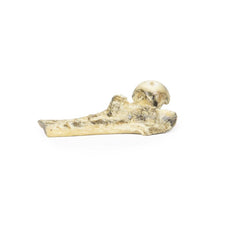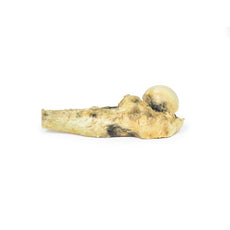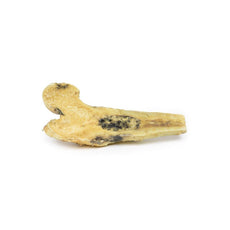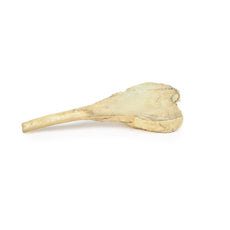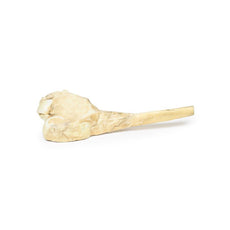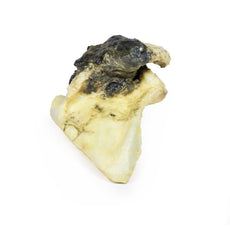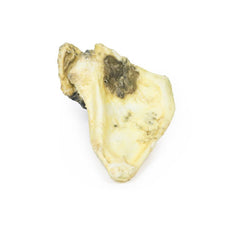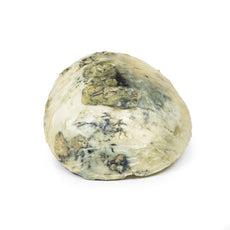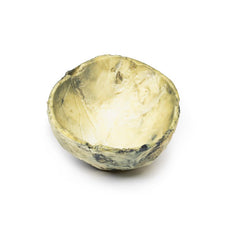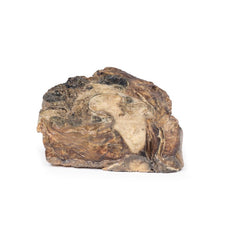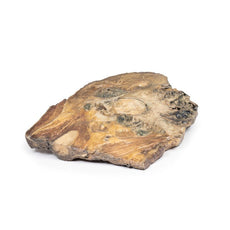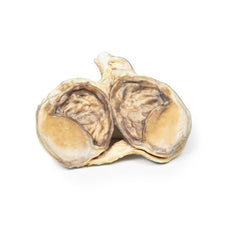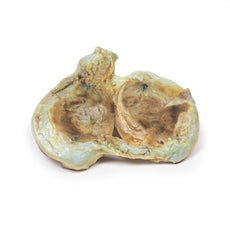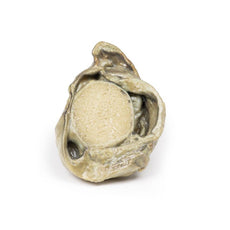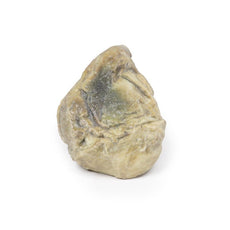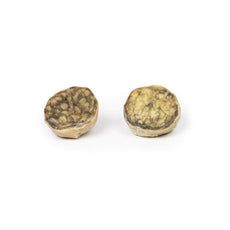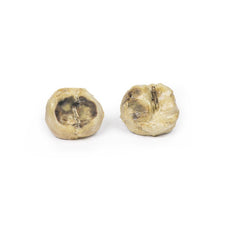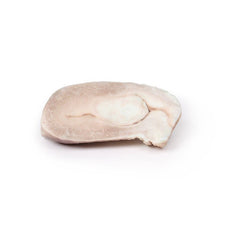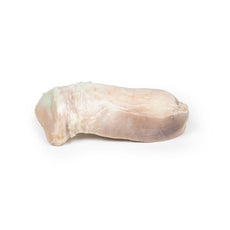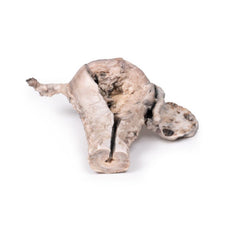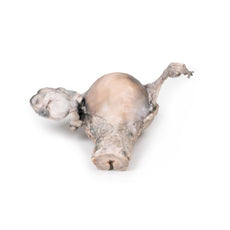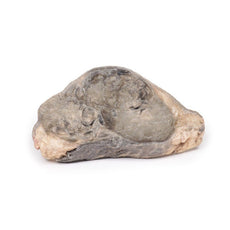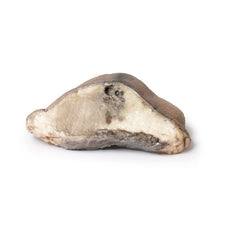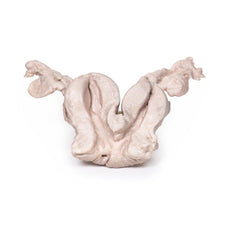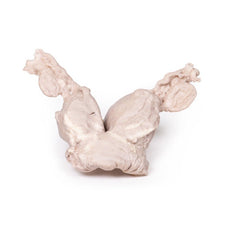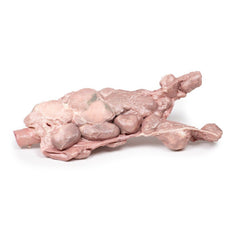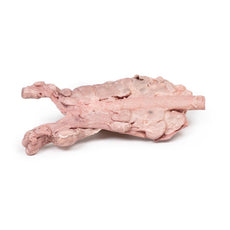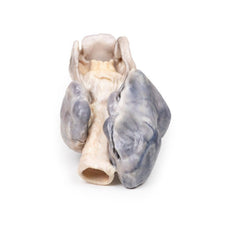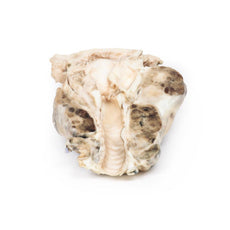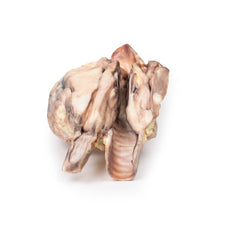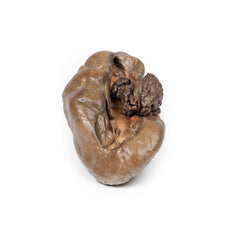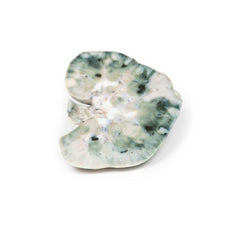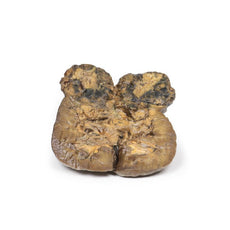Your shopping cart is empty.
3D Printed Hepatocellular Carcinoma
Item # MP2085Need an estimate?
Click Add To Quote

-
by
A trusted GT partner -
3D Printed Model
from a real specimen -
Gov't pricing
Available upon request
3D Printed Hepatocellular Carcinoma
Clinical History
A 60-year old male is admitted with jaundice, melena and abdominal distension.
He has a past medical history of untreated Hepatitis C infection from previous intravenous drug use. Further
questioning reveals a 9-month history of significant fatigue, weight loss, nausea and intermittent dull right upper
quadrant pain. Liver ultrasound demonstrated two large lesions within the liver. Soon after admission the patient
dies from a suspected oesophageal variceal haemorrhage.
Pathology
This is the liver specimen of the patient on postmortem examination. The cut surface
of the liver has a multinodular appearance consistent with macronodular cirrhosis. These multiple nodules are of
varying size up to 2cm in diameter, and are separated by narrow bands of fibrous tissue. There are two large round
tumours also visible. These are 8cm and 6cm in diameter with a variegated cut surface due to focal necrosis,
haemorrhage and bile staining. This is an example of hepatocellular carcinoma that has developed on the background
of a cirrhotic liver.
Further Information
Hepatocellular carcinoma is the most common primary malignant liver cancer.
HCC arises from hepatocytes in the liver. Risk factors for developing HCC include viral infections (Hepatitis B and
Hepatitis C), liver cirrhosis, aflatoxin exposure, Non Alcoholic Fatty Liver Disease (NAFLD), haemochromatosis and
Wilson‘s Disease. The latter is an inherited disorder in which excessive amounts of copper accumulate in the body,
particularly in the liver, brain, and eyes. HCC incidence is highest in Asia and sub Saharan Africa. There is a
higher risk of developing HCC in males. HCC is associated with acquired driver mutation in oncogenes and tumour
suppressor genes. The two most common driver mutations that can lead to HCC are gain-of-function mutations in
beta-catenin and loss-of-function mutations in p53.
Clinically HCC can present with abdominal pain, fatigue, weight loss, abdominal fullness and less commonly jaundice, gastrointestinal or variceal bleeding. HCC metastatic spread is haematogenous with lung, abdominal lymph nodes and bones being the most common extrahepatic sites. Death usually occurs from cachexia, haemorrhage or liver failure. Treatment varies on the stage of the tumour and the patient’s underlying general status and co-morbidities. Treatment can include surgical resection of ablation of the tumour, chemotherapy and liver transplantation can be curative.
Download: Handling Guidelines for 3D Printed Models
Handling Guidelines for 3D Printed Models
GTSimulators by Global Technologies
Erler Zimmer Authorized Dealer
The models are very detailed and delicate. With normal production machines you cannot realize such details like shown in these models.
The printer used is a color-plastic printer. This is the most suitable printer for these models.
The plastic material is already the best and most suitable material for these prints. (The other option would be a kind of gypsum, but this is way more fragile. You even cannot get them out of the printer without breaking them).The huge advantage of the prints is that they are very realistic as the data is coming from real human specimen. Nothing is shaped or stylized.
The users have to handle these prints with utmost care. They are not made for touching or bending any thin nerves, arteries, vessels etc. The 3D printed models should sit on a table and just rotated at the table.









